By Alain Francois
When you host any infrastructure, you need to monitor it to prevent issues from happening. This should be applied to every type of service (application, database, web, etc.) hosted in your infrastructure. It's more important when you host a cloud infrastructure. The difference is that you don't need to deploy the monitoring service by yourself, but you can use a service your provider offers. This way, you can easily monitor your applications or web servers, the most important being the database server. Alibaba Cloud offers a cloud monitoring service called CloudMonitor to help monitor your ECS and AsparaDB RDS instances.
First, we should explain cloud monitoring tools. They are tools that help assess the state of cloud-based infrastructure by tracking the performance, safety, and availability of crucial cloud apps and services. Companies can use various applications monitoring tools to monitor cloud-based applications since there are multiple types of cloud services to monitor.
CloudMonitor is a service that monitors Alibaba Cloud resources and Internet applications. It is a one-stop, out-of-the-box, and enterprise-class monitoring solution with services, such as cloud service monitoring, site monitoring, and custom monitoring, to safeguard your products and business. The monitoring services are efficient, comprehensive, and cost-effective and allow you to monitor your IT infrastructure and services qualities based on events, custom metrics, alerts, and logs.
CloudMonitor provides application groups and alert templates to monitor many instances from dozens of services. You can add resources from different services and regions to the same application group to simplify resource management. CloudMonitor can monitor the metrics of Alibaba Cloud services, detect the availability of websites hosted on Elastic Compute Service (ECS) instances or carrier servers, and configure alert rules for specified metrics.
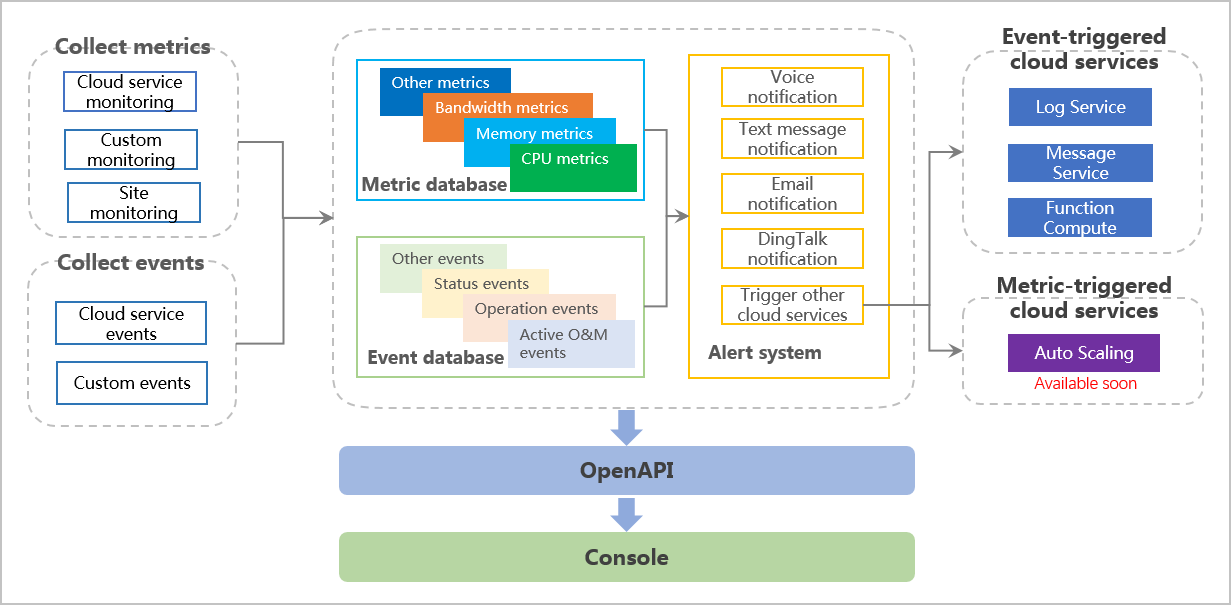
You need an Alibaba Cloud account to run any service. If you don’t have an account, you can get a coupon to create a new account during the Mega March Sale.
Log into your account and go to the AsparaDB service:

This guide assumes you already have an RDS instance. Take a look at the AsparaDB RDS monitoring tool. You can see the standard monitoring for the resources like CPU, memory, etc.
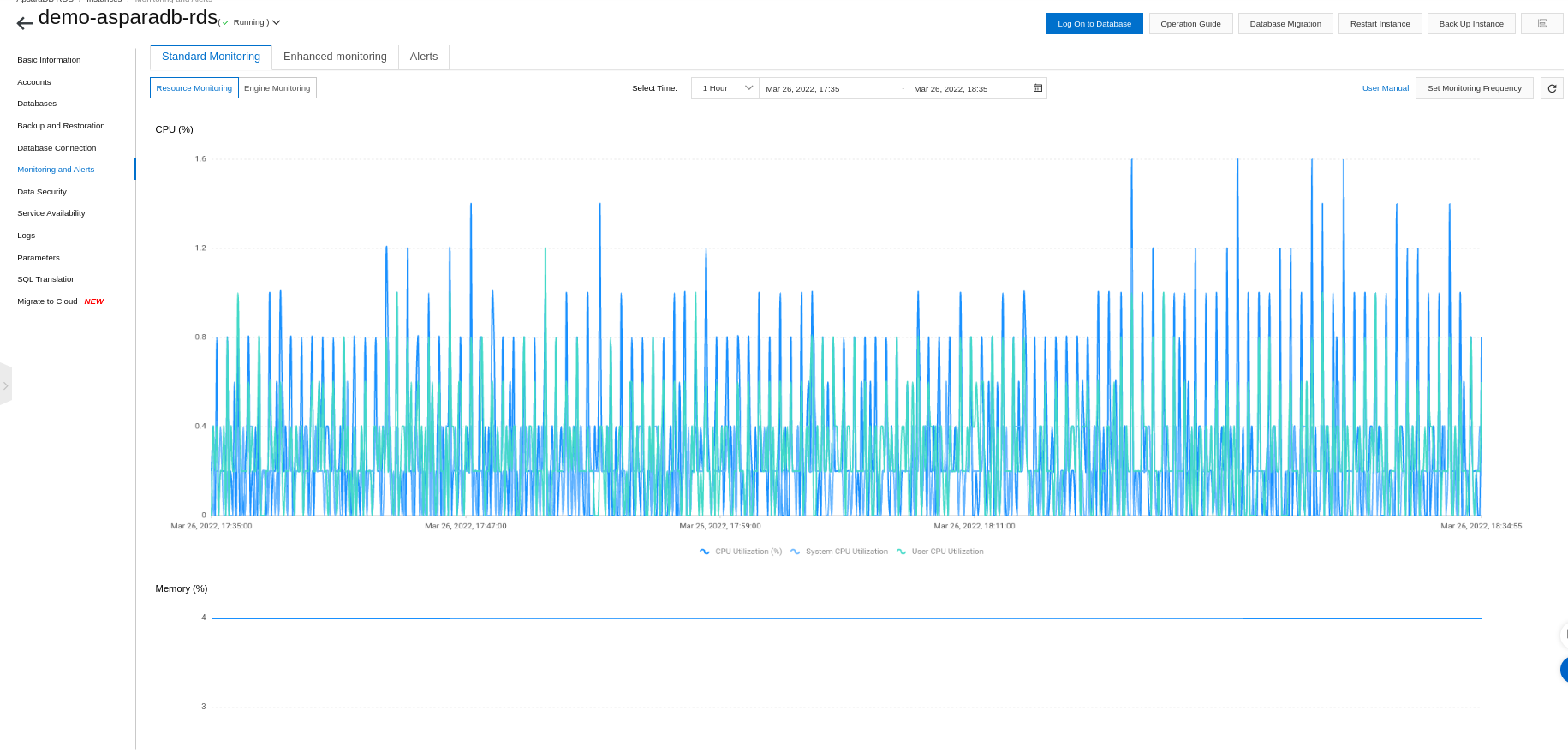
You also have the standard monitoring for the engine like the connections, operations rows, etc.
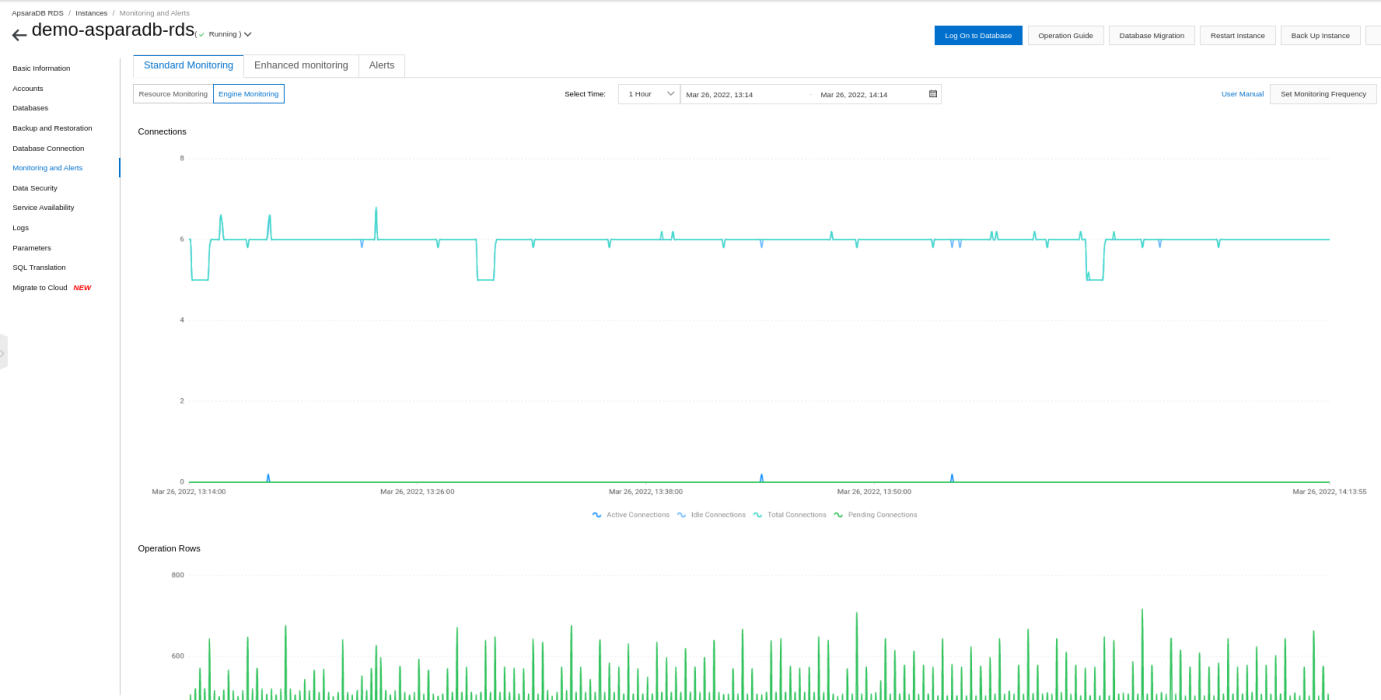
There is another view for more detailed elements to monitor. It's the _enhanced monitoring_:
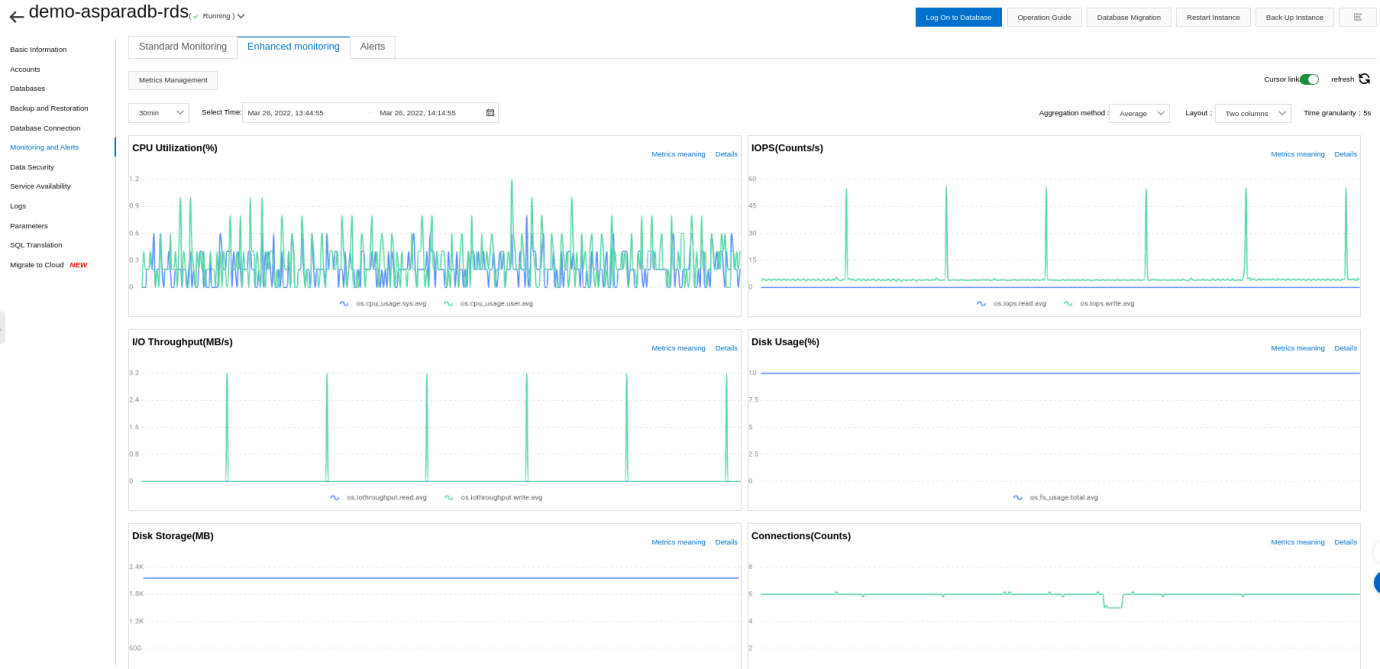
You can add some OS or DB metrics to monitor. There is a metric meaning to let you understand what you can do:
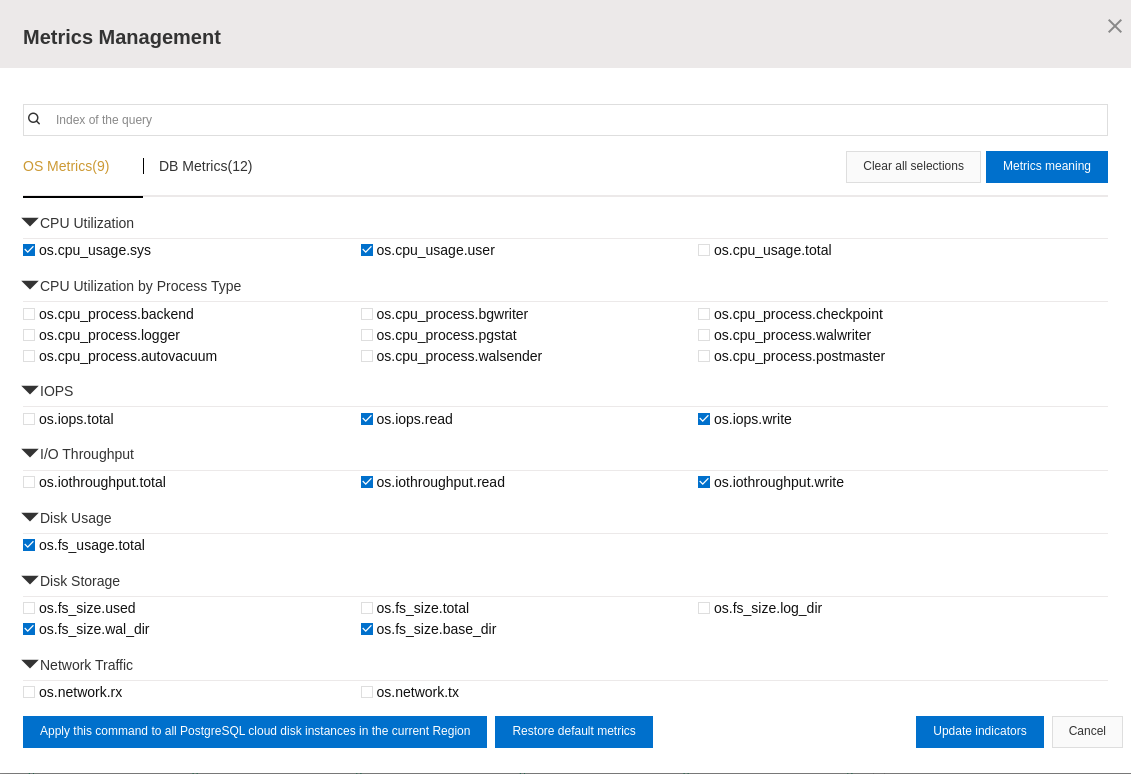
The most important thing is to get alerts if something goes wrong, but the alerts are not activated by default. You need to activate the _Initiative Alert_:

When you activate it, you will see some new standard rules:
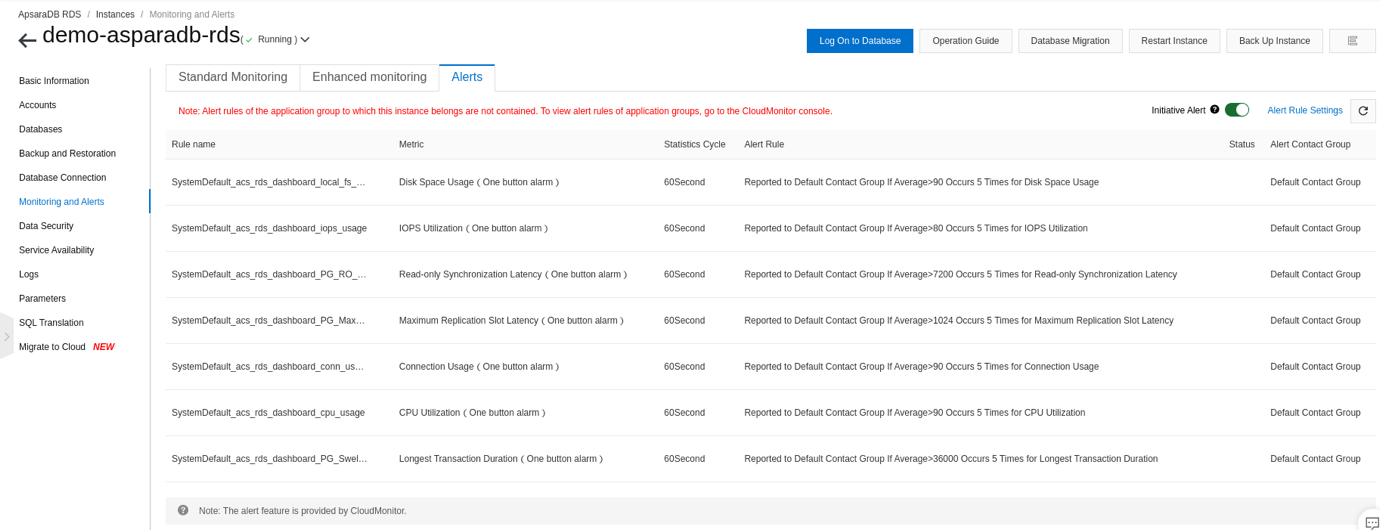
You can add some specific rules and configured alerts to be sent through email. You need to use CloudMonitor.
If you want to monitor your AsparaDB RDS instance with some features like email alerts, you need to open CloudMonitor:
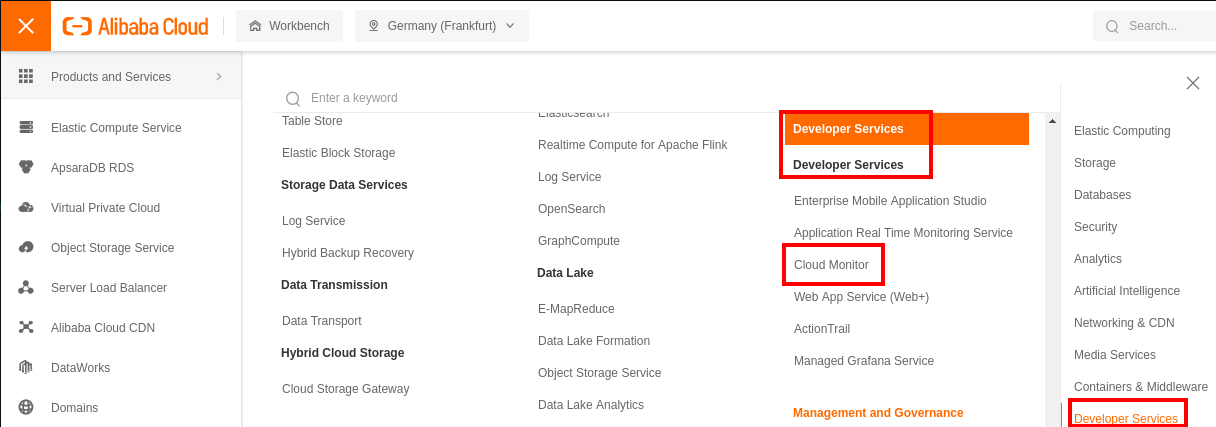
You will see the homepage of CloudMonitor:

First, we need to create a contact to denote to whom the alerts should be sent. Go to the bottom of the panel to create a new contact. Your contact as the Alibaba Cloud account owner is there by default:
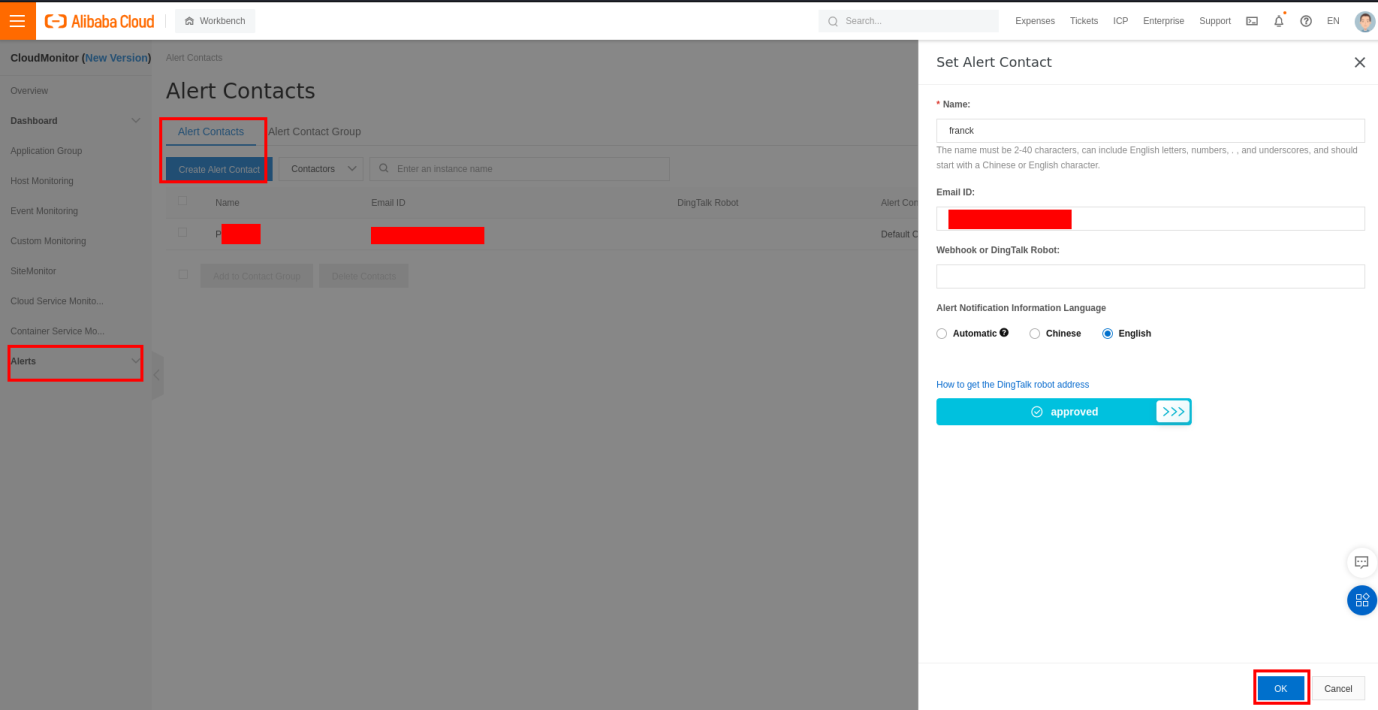
Enter the name and the email of the persons that should receive the alerts. The contact will receive an email link activation for their account:
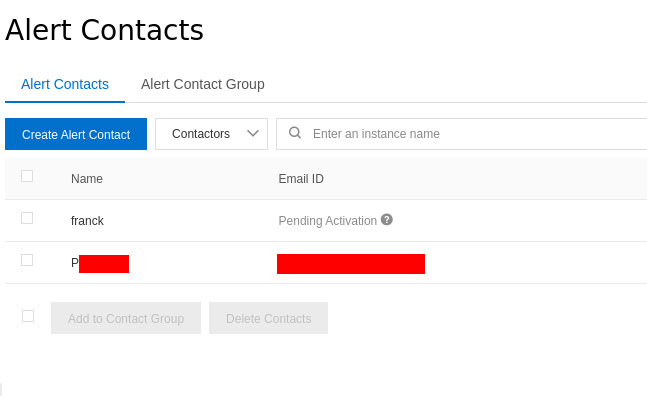
After activating their account, the status will change. You also need to create an alert group that will contain the different contacts that have been created. Those alert groups can help you organize an alert strategy:
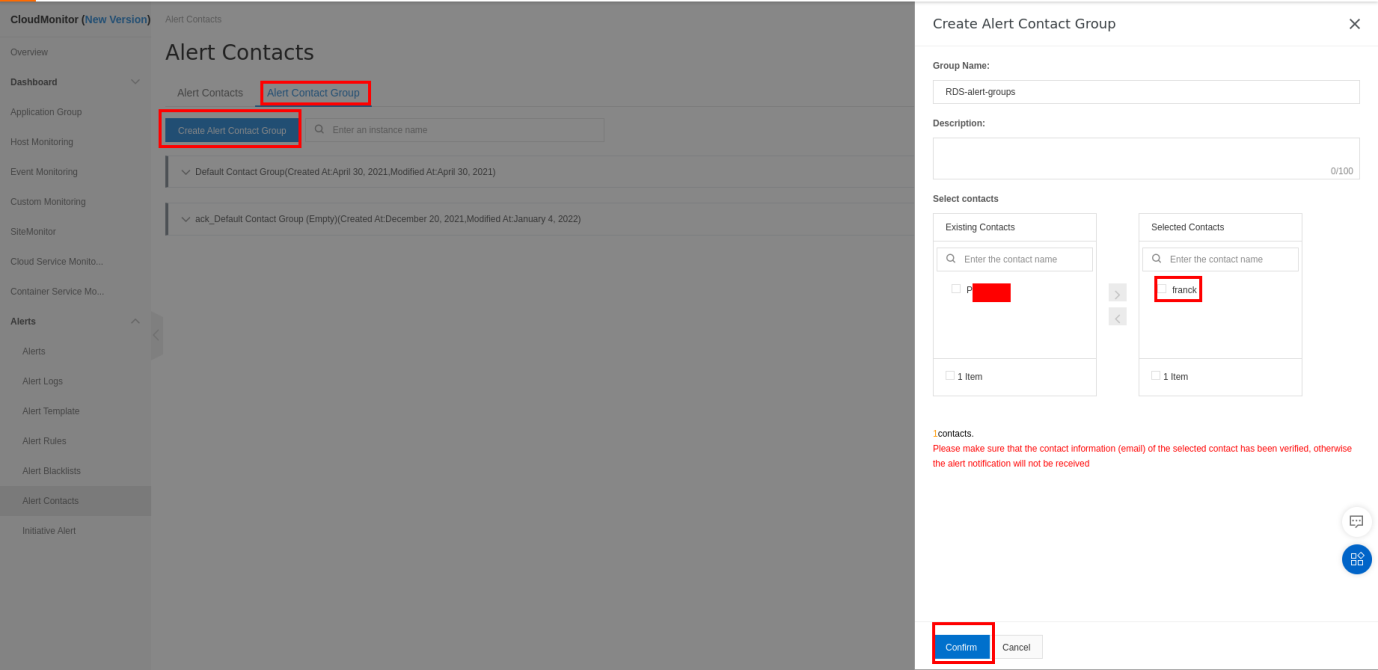
Once the contacts have been created, we need to add our AsparaDB instance to CloudMonitor. Go to Cloud Service Monitoring on the panel and choose your database type:
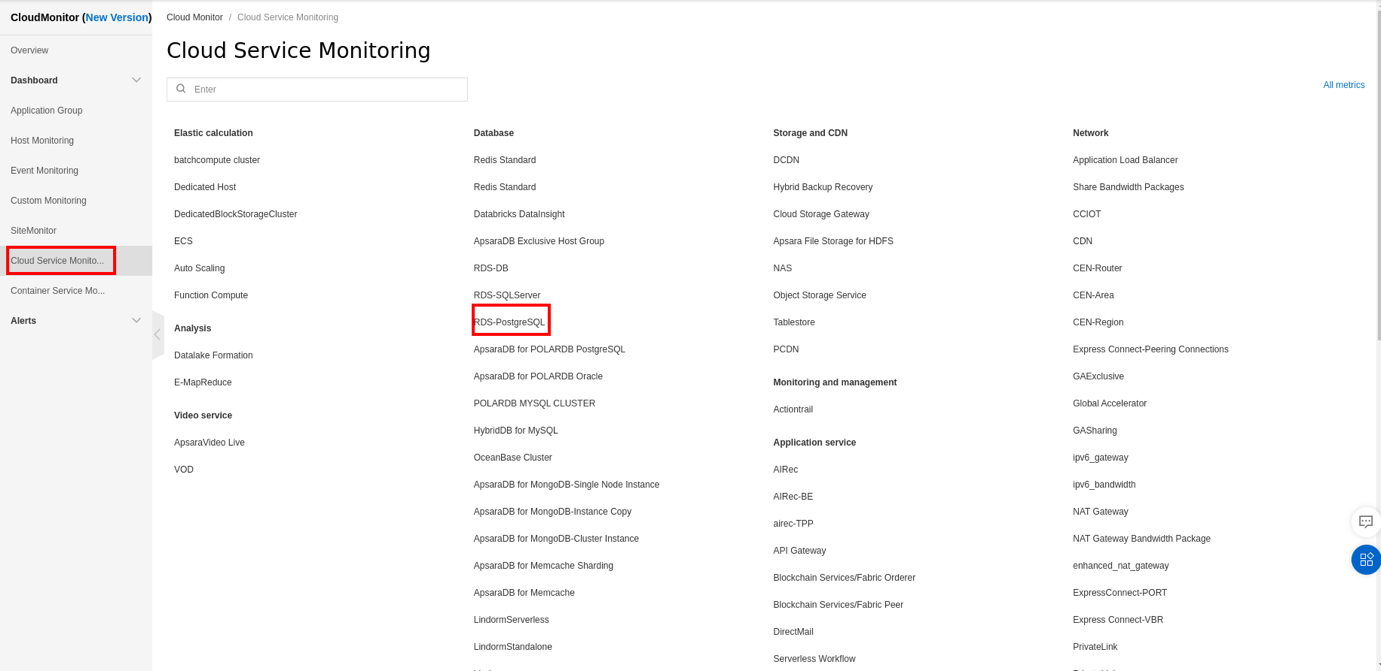
Make sure to select the appropriate region. Otherwise, your instance will not appear. You can see your RDS instance:

You can click it to see the details:
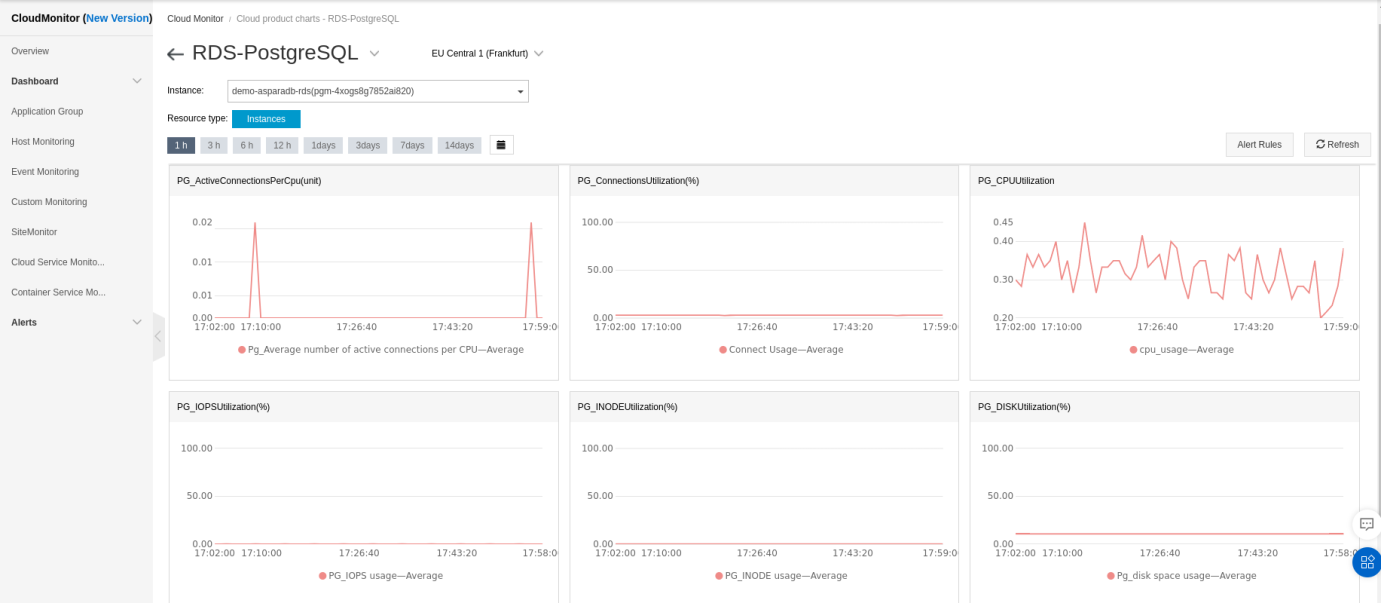
Now it's time to create new monitoring rules. Go back to the previous page and create a new rule:

When creating the rules, you can choose the product AsparaDB, Elastic IP Address, Log service, etc. You can add as many rules as you want. There are some rules for PostgreSQL you can choose regarding what you plan to monitor. You need to indicate the Threshold value that will indicate when to send the alert for each to monitor. You will also need to indicate after how long the alert must be returned (reminder) if the problem persists. In this guide, we will monitor the Maximum Database Age, and we will insert a value that will generate an alert for the test:
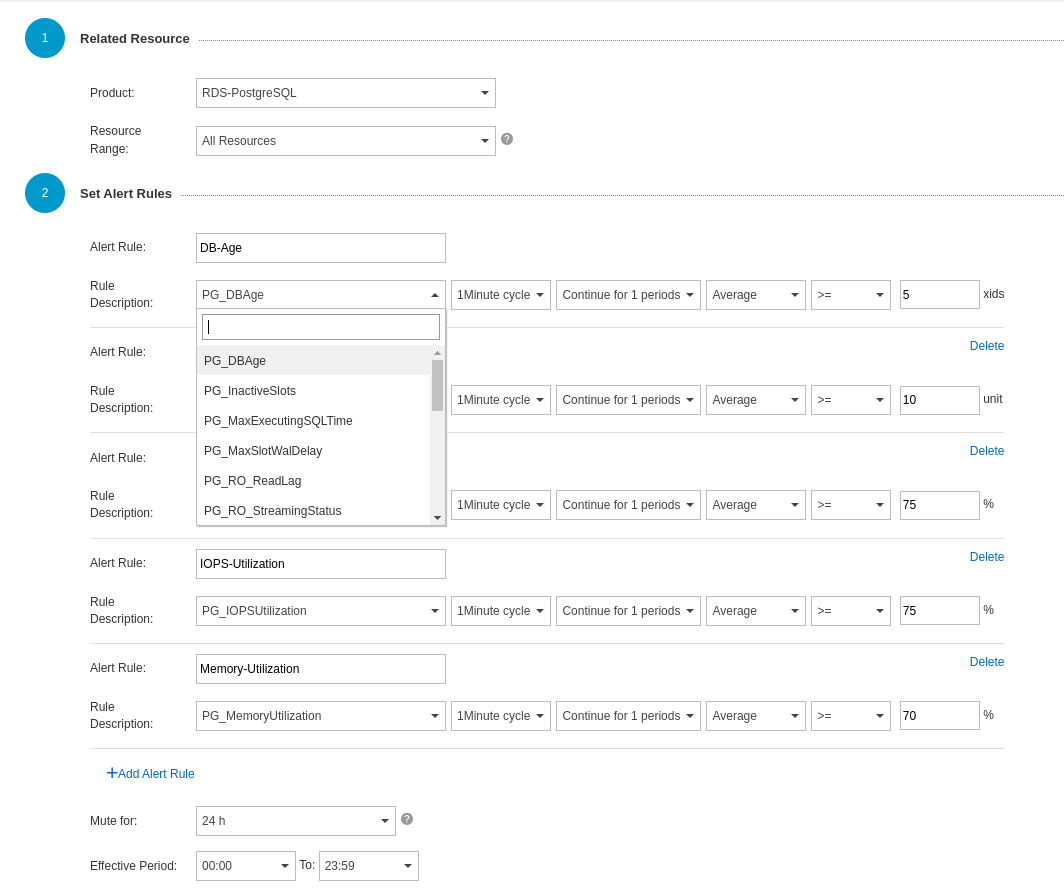
You need to indicate how you would like the alerts to be sent. CloudMonitor can send alerts through email and DingTalk. When creating a contact, if you have indicated the DingTalk information, the alert contact will receive the notifications on DingTalk:
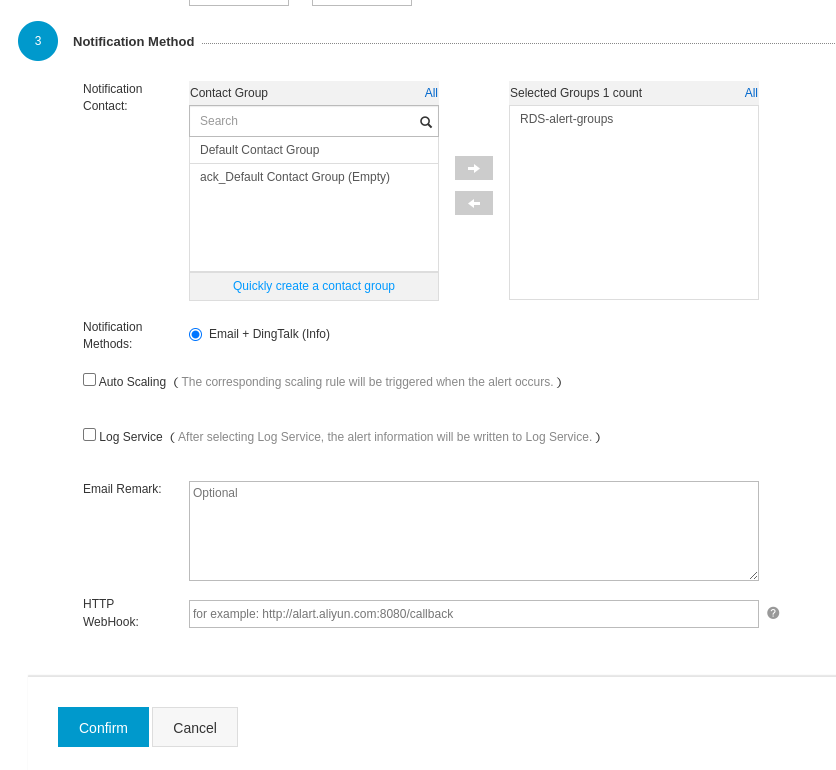
Confirm the configuration. Now, you can go to the alerts rules overview to see what you have defined. You can see that one of the services we are monitoring is not working:
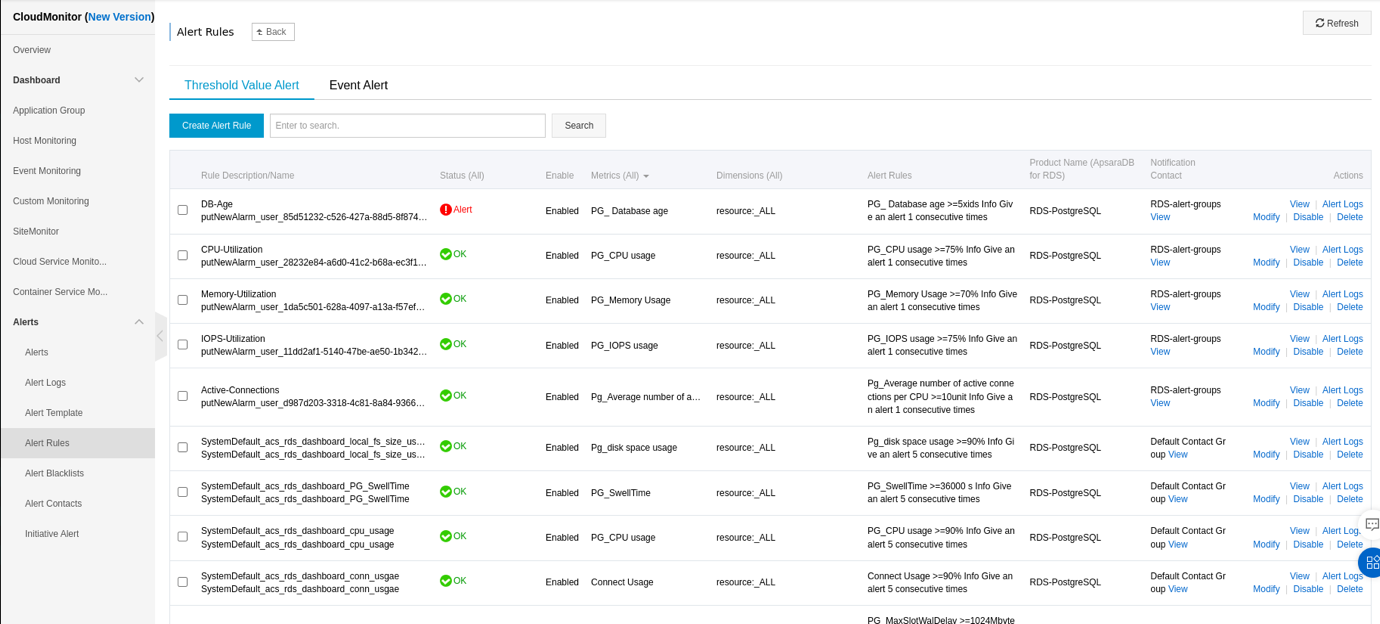
We should receive an email alert. Let's check the email inbox of the contact added previously. You can see the email received from CloudMonitor:
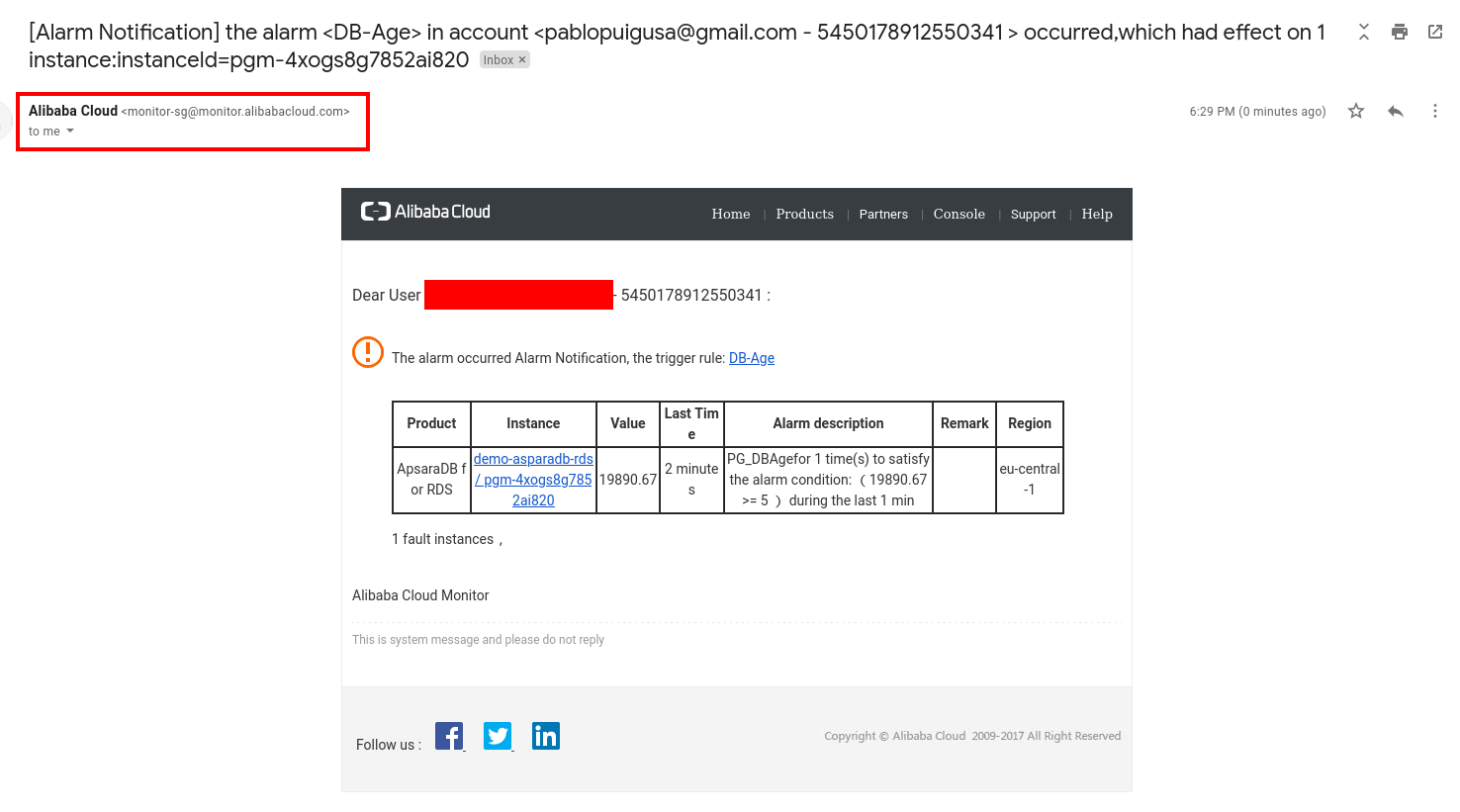
You can return to the AsparaDB RDS monitoring tool and check the rules to see if the new configured rules appear:
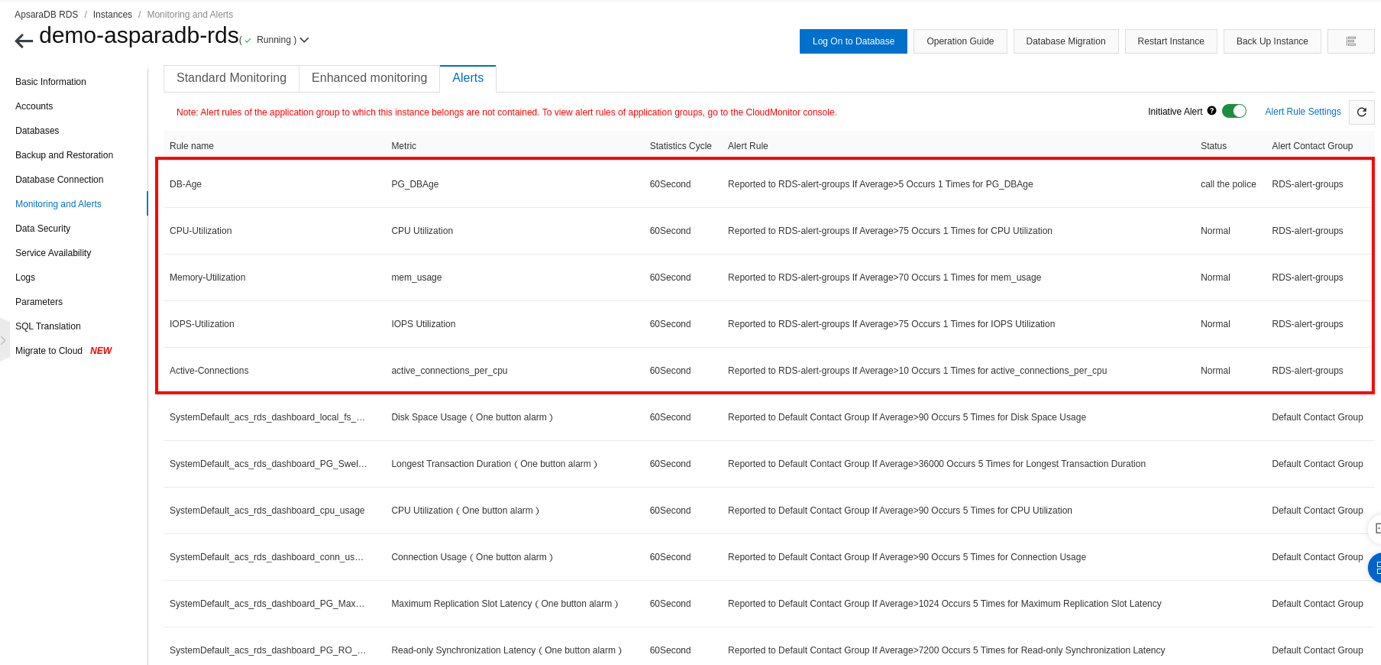
Cloud infrastructure produces a mountain of data in real-time. You can monitor cloud-native infrastructure and applications from a simple or multitier architecture. Monitoring is a must for any cloud infrastructure or service for security and performance, and Alibaba Cloud Monitor helps you do so.
How to Monitor Alibaba Cloud ECS Instances with CloudMonitor
How to Set up a Web Server with High Availability Using Server Load Balancer

1,320 posts | 464 followers
FollowAlibaba Cloud Community - March 31, 2022
Alibaba Cloud Community - March 28, 2022
Alibaba Clouder - February 17, 2020
Alibaba Cloud Community - October 26, 2021
Alibaba Clouder - April 8, 2021
Alibaba Clouder - February 22, 2021

1,320 posts | 464 followers
Follow CloudMonitor
CloudMonitor
Automate performance monitoring of all your web resources and applications in real-time
Learn More Managed Service for Prometheus
Managed Service for Prometheus
Multi-source metrics are aggregated to monitor the status of your business and services in real time.
Learn More Application Real-Time Monitoring Service
Application Real-Time Monitoring Service
Build business monitoring capabilities with real time response based on frontend monitoring, application monitoring, and custom business monitoring capabilities
Learn More ApsaraDB RDS for MySQL
ApsaraDB RDS for MySQL
An on-demand database hosting service for MySQL with automated monitoring, backup and disaster recovery capabilities
Learn MoreMore Posts by Alibaba Cloud Community